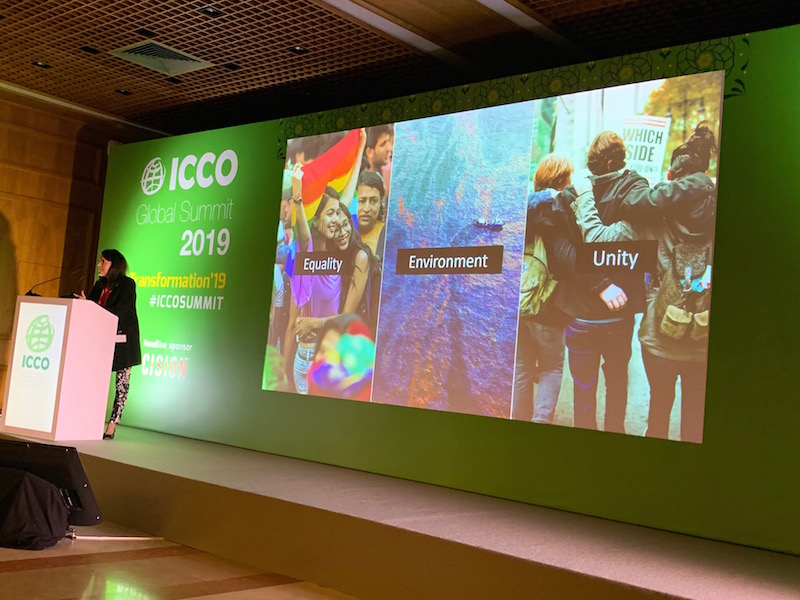Maja Pawinska Sims 14 Oct 2019 // 3:38AM GMT

LISBON — To thrive in the “consumer revolution”, brands need to accept that loyalty is now driven by more than products or customer service, according to WE Communications global CEO and founder Melissa Waggener Zorkin.
Opening the ICCO Global Summit in Lisbon last week, Waggener Zorkin said consumer expectations about how brands behave in the world and express their purpose were steadily rising, and this was resulting in a “perfect storm” for brands and “the most seismic time ever for communicators.”
“Consumers now have so much power, one day they can be asking brands for anything and everything, and the next day they might not deal with the brand at all. It’s a continuous curve of demand that will only increase: consumers are not just demanding a product or a great service, they are demanding you meet them in their values. It’s a relationship that is very different from even five years ago.”
Waggener Zorkin said the “stakes were higher than ever” in terms of how businesses approached that relationship: “There is a new brand loyalty emerging, built not on what companies say but the actions they take every day. Consumers are demanding that brands are not just human around the edges, but human to the core.”
Consumers were craving that brands take a stand on three areas in particular: equality, the environment, and unity, or “brands playing a role in uniting a divisive world,” according to Waggener Zorkin. She said WE Communications’ annual Brands In Motion study also indicated that brands could take positive action to meet these demands through “leading with purpose and personal conviction, building a new brand loyalty based on 360-degree respect, and proving their global impact with local action.”
Waggener Zorkin cited fast-fashion brand Zara committing to only selling sustainable products by 2025; technology company Glitch creating a one-million-strong community for developers; and Iceland’s campaign to tackle use of palm oil as three recent examples of brands that were leading their industries through purposeful initiatives.
In terms of the role of communicators in fostering this new relationship between brands and consumers, Waggener Zorkin said: “I’ve always fundamentally believed that communications is a gift we all have: the ability to move people to a positive action in the world. That’s it, full stop. It’s a lofty goal but communicators can lead to building communities, and community can lead to understanding, and understanding can lead to true unity, and unity leads to peace, so we have a big role to play.
“If we work properly with messaging, branding, the work and counsel we can be uplifting, or we can behave the other way and start bringing down the conversations so they are not constructive.”
And she added that in the purpose era, agencies also needed to make sure that they were respecting their own values in their work for clients: “With purpose, comes consequence. When you stand for something, you are also not standing for something. Sometimes we have to make difficult decisions about the people and clients we work with.”


































.jpg)







.tmb-135x100.jpg)









